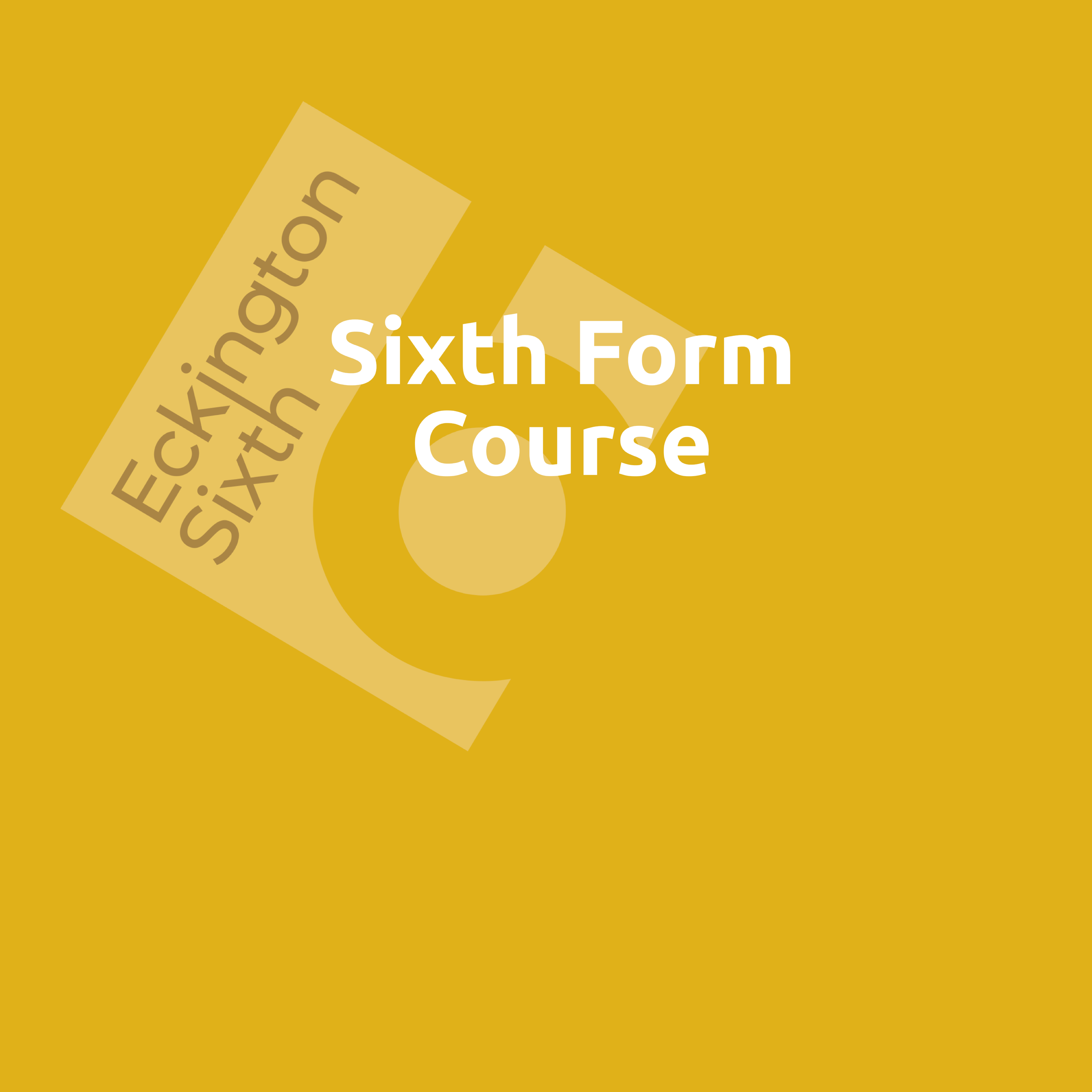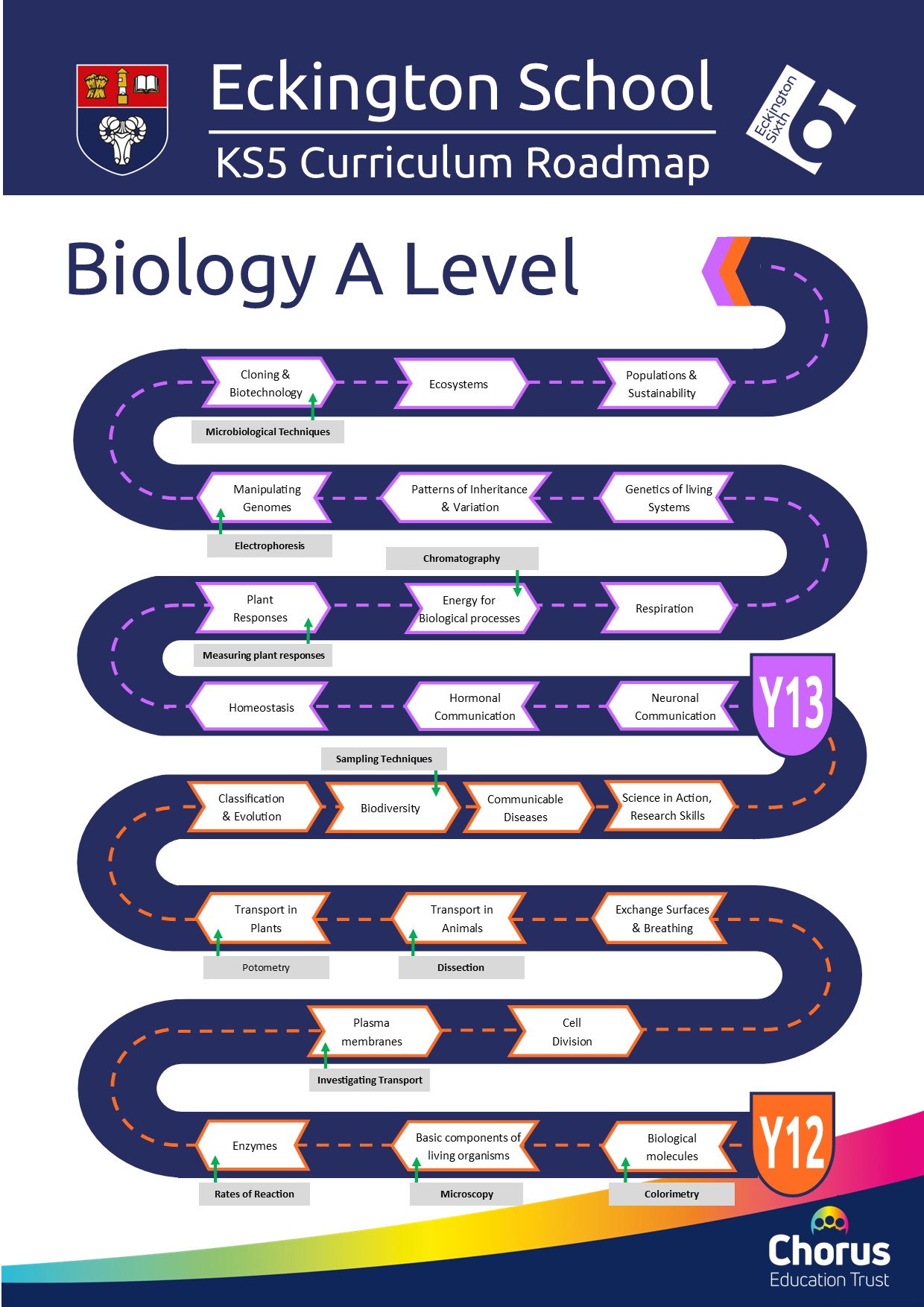Courses
We offer a broad and balanced curriculum, for:
Click the appropriate button below to find the details for each subject offered in each key stage.
Further details of our curriculum are available on the curriculum page.

Overview
Biology
Introduction
Studying A-level biology allows students to unlock the secrets of life. It helps you understand how living things work, from tiny cells to entire ecosystems. This subject not only teaches you about genes, bodies, and ecosystems but also sharpens your thinking skills. A-level biology is practical and shows you the real-world impact of biology on medicine, the environment, and more. It's not just about memorising facts; it's about understanding the world around you. Plus, it opens exciting career paths in medicine, research, and environmental science.
Qualification
A-level
Awarding body
OCR ('A' specification)
Course leader
H Streets
Assessment
- Examination: 100%
- Paper 1 - biological processes (100 marks) covers modules 1, 2, 3 and 5
- Paper 2 - biological diversity (100 marks) covers modules 1, 2, 4 and 6
- Paper 3 - unified biology (70 marks) covered modules 1-6
- Non-examined assessment: practical endorsement, delivered throughout the course. Includes dissection, microscopy, research, enzyme controlled reactions and ecological studies.
Curriculum
Curriculum roadmap
Topics
- Module 1: development of practical skills.
- Module 2: foundations in biology.
- Module 3: exchange and transport.
- Module 4: biodiversity, evolution and disease.
- Module 5: communication, homeostasis and energy.
- Module 6: genetics, evolution and ecosystems.
Skills and requirements
Subject entry requirements
- Grade 6/5 in GCSE double award science or grade 6 in GCSE biology if studying triple science.
- Grade 5 in English.
- Grade 6 in maths.
Sixth Form entry requirements
- 4 A-levels over 2 years: for students who have achieved 5 or more grade 7s or above including English and maths (grade 5 or above).
- 3 A-levels over 2 years: for students who have achieved 5 grade 5s or above including English and maths.
- Level 3 vocational courses: for students who have achieved 5 grade 4s or above including English and maths.
Skills learned
Practical skills acquired include planning, implementing, analysis, evaluation, independent thinking, application, research and referencing. Practical skills are covered throughout the course and are assessed in the practical endorsement.
Beyond the classroom
Future pathways
Biology is a popular option for students considering medicine, dentistry or veterinary science.
Other career pathways include: nursing, biochemistry, biomedical science, genetics, molecular biology, forensic science, pathology, sports science, environmental science, optometry and physiotherapy.




